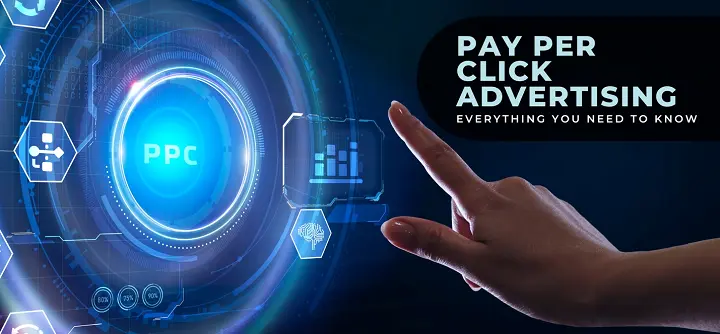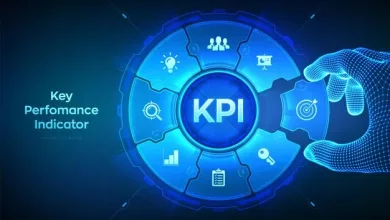Pay Per Click Advertising: Everything You Need to Know

You might know a few things about pay-per-click advertising marketing, and you might be aiming to learn more.
Also, you might like to start using PPC ads to market your brand, but you are unsure how to begin. PPC advertising is being utilized by many businesses nowadays to enhance their digital marketing strategy and boost sales.
There are Google Ads and paid social media ads on platforms like Facebook, Twitter, and Instagram. Additionally, these ads are displayed on websites online.
You need to use it today to reach more people and grow your business. You might also want to know about some terms under pay-per-click advertising; read on to find out more!
What is Pay Per Click Advertising?
It is a form of digital advertising in which an advertiser pays an amount anytime someone clicks a paid ad. Basically, one pays to visit his site, landing page, and application.
If your PPC is going well, you will benefit so much after paying so little because the clicks are worth more than whatever you’re paying.
A sample is when you’re paying $3 per click, then that click leads to a sale of $400. So, you have earned a considerable profit.
There are different formats, and PPC ads are of various shapes and sizes. They can consist of text, image, and video ads, and all of them combined.
They come up in search engines, websites, social media platforms, etc. So, you can do a PPC ad for searches. Some examples of ads in popular PPC platforms are YouTube, LinkedIn, Meta, Twitter, Facebook, and Microsoft ads, etc.
If you want your ads and posts to be discovered by more YouTubers, Views4You is your solution.
With this amazing tool, you can find the best time to post content on YouTube and even know the perfect time to post YouTube ads when most users are online to watch them.
Search Engine Advertising
This is additionally called paid search or search engine marketing. It’s a very common form of pay per click, which lets marketers bid for ad placement in a sponsored link of search engines whenever a person carries out a search relating to their brand or niche.
A sample is when one bids on a keyword ‘Google Ads audit.’ The person’s ad for a Google Ads Grader can come up on SERP for such searches.
Steps on How PPC Advertising Works
The way PPC advertising works varies depending on the platform. However, generally, its process goes like this:
- Select a campaign type according to your objectives.
- Change your settings with targeting, like audience, device, location, and schedule.
- State your ad spend budget, then the bidding strategy.
- Enter your target URL for your landing page.
- Start building your ad.
- Immediately after the ad becomes live, one’s ad budget, bid, settings, and quality algorithmically determine the place and time it will come up and the amount he’s paying for a click.
- Advertisers creating important, trusted pay-per-click campaigns using bigger ad positionings and smaller costs are rewarded because all platforms offering paid ads want users to remain satisfied. Therefore, if you’re aiming to start maximizing your profit from PPC, you must master the way to carry it out well.
Google Ads
Google Ads stands as the most common PPC advertising all over the globe. A brand can create a Google Ads account and make ads in this search engine.
Anytime a search starts, Google will dig into the multiple ads and then pick winners that will come up on the search engine results page.
In Google paid search ads, they pick winners using factors like their ad campaigns, keywords’ quality and relevance, and their keyword bids’ sizes.
How Do Pay-Per-Click Ads Work in Google Ads?
Whenever marketers make ad placements, they’ll select some keywords for targeting with the advert, then put a bid on all keywords.
Therefore, if you’re bidding on the keyword ‘pets,’ you’re signifying to Google that he wants his ad to come up for any search matching and relating to pets.
Google usually utilizes some formulas with an auction process for deciding the ads that will appear on a search.
If one’s ad enters the auction, it’ll provide him a Quality Score according to his ad being relevant to that keyword, his anticipated click-through rates, and the quality of the landing page.
Afterward, his Quality Score will be multiplied by his maximum bid to determine his Ad Rank. Ads having the largest Ad Rank score will show.
The style lets winners get to potential clients at costs fitting in with their budgets. It is basically some form of auction. This ad auction is usually used for Google ads.
PPC Using Google Ads
Doing PPC marketing via Google Ads has value due to the fact that this most common search engine, Google, receives huge traffic, thereby delivering the highest impressions with clicks for one’s ads.
The rate at which one’s PPC ads come up depends on the keywords and match type he chooses. You can use Google Analytics to check out your ad’s performance.
Though some factors determine the success of one’s PPC campaign, you’ll achieve much when you do all these:
Bidding on Relevant Keywords:
This is when you craft a relevant PPC keyword list, keyword groups, and the right ad texts.
Focusing on Landing Page Quality:
This is when you make optimized landing pages using compelling, useful content, then the right call to action designed for a particular search query.
Improving One’s Quality Score:
This score is the rating of Google according to one’s keywords’ quality and relevancy, landing page, and PPC campaigns. Marketers having greater Quality Scores receive higher ad clicks with smaller costs.
Capturing Attention:
A captivating ad copy remains crucial. When you run display and social adverts, make it captivating. This will result in an efficient ad copy.
Efficient PPC Keyword Research
Keyword research for Cost Per Click CPC usually takes lots of time. However, it’s very essential. The whole PPC campaign is about keywords, and Google Ads advertisers having the highest success keep growing and refining their keywords list.
Suppose one just does a keyword search when he created his foremost campaign. In that case, he will surely miss out on many important, long, cheap, and relevant keywords, which can enhance his search engine optimization and drive traffic to his website.
For your PPC keyword search, an efficient keyword list should:
Have Relevancy: You wouldn’t like to pay for clicks on any advertising platform that wouldn’t convert. This emphasizes the fact that your keywords have to be very related to your offerings.
Be Exhaustible: One’s keyword research must add the most common words in his niche and long keywords. They’re less popular. However, they’re still included in accounts for most traffic.
Be Expansive: One will surely need to refine and expand his campaigns regularly and make environments where his keyword list grows and adapts continuously.
You can utilize top keyword research tools online if you’re looking for keywords with high search volumes in search results pages and keywords specific to your niche for use in PPC campaigns. They are usually free and great for finding keywords for one’s Bing ads.
Read Also: Professional Networking: Navigating LinkedIn Video Production
How to Manage Your PPC Campaigns
Immediately after creating any new PPC campaign, you must start managing them constantly to ensure they remain effective.
Continuous account activity stands as a top predictor for account success. You’ve to analyze your ad extensions and account’s performance continuously and make these adjustments below to start optimizing your PPC campaigns:
Include PPC Keywords Constantly: Widen your PPC campaigns’ reach by including relevant brand keywords.
Include Negative Keywords: Include terms like negative keywords in order to start improving your ad relevance and lessen wasteful spending.
Reassess Pricey PPC Keywords: Reassess any costly or low-performing keyword. Remove it if you can.
Improve Landing Pages: Improve your landing page content and CTA to align with any search query to boost conversions. Do not direct all of your traffic to a particular page.
Divide Ad Groups: One can enhance his click-through rates with his Quality Score by dividing his ad groups into tinier, better relevant ad groups. This will aid you in creating better-targeted content for ad texts than landing pages.
Read Also: Website Marketing Essentials for Businesses
Conclusion
Pay Per Click Advertising is a very effective online advertising model where advertisers pay any time someone clicks on their adverts. Search engines like Google Ads are the most popular pay-per-click marketing type.
Here, advertisers bid on keywords; their ads appear on search engine results pages (SERPs) at the top whenever people search for the keywords. PPC ads are compelling, so start utilizing them today.





